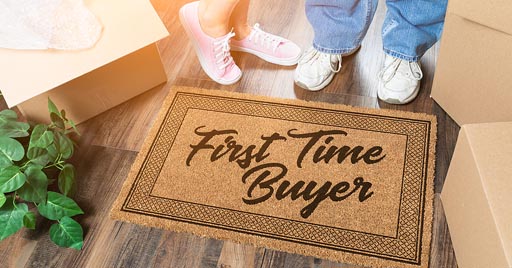7 Simple Steps To Evaluating Your First Home Before You Buy


Finally!
You thought it would never happen, but here you are, buying your first home. Maybe it's your dream home, maybe it's a starter home, but it's yours. And it's turned out to be a bigger headache than you'd anticipated.
It can feel overwhelming to be bombarded with so many decisions to make all at once. But, if you break it down piece by piece, you'll find that it's not as complicated as it seems.
So, for now, put all that stuff about school districts and resale value and location out of mind, and let's talk about good bones. That is, once you've found that home with three beds, two baths, and a patio, just like you wanted, how do you know if it's built to last?
The roof is the first thing your homeowners insurance provider will look at, so it'd better be the first thing you look at. There's only so much you can tell about a roof from street level, so ask the realtor and make sure the roof is no more than ten years old.
Mold and water damage are problems that might be easy to fix if you catch them early, but they can be very costly and pose a health hazard if you put them on the "worry about that later" list. Basements, crawl spaces, bathrooms, and kitchens are key spots to check, but make a note to your realtor of mildewy smells or water spots no matter where you find them.
Okay, maybe you're not a plumber. But if the toilets and water heater look good, if everything flushes, runs, and drains just fine, and there are no funny smells in or around the house, you're probably good to go, as long as the home isn't more than 20 years old.
Does the fridge run cold? Is the HVAC unit rusty or cracked? Do the outlets work without making a scary crackling noise? It only takes a few minutes to flip all the switches, test the outlets, and eyeball the appliances, and it could save you thousands on repairs in the long run.
You're looking for structural problems. Sloping floors, doors that refuse to open or shut, leaning chimneys, and gaps around doors and windows can all point to issues with the foundation. Not all cracks are worrying, but you'll probably know the bad ones when you see them.
Ask your realtor to provide you with all available certifications. The older the home, the more important it is that you see the paperwork. They might not have documents for every square inch of the home, and sometimes, all you have to do is look at the HVAC unit to know that it's brand spanking new. But if there are any areas of the home that you find concerning, you'll want to see the papers.
And if they can't provide you with the documents you need to put your mind at ease…
Whether you're talking about holes in the roof or cracks in the pipes, hiring a professional home inspector will always be cheaper than shelling out for repairs. An expensive fix might not be a deal breaker if it's manageable and if you can work it into the negotiation. But you need to know what you're buying and what it's worth before you sign on the dotted line.
You're not just buying four walls and a roof as a first-time homebuyer; you're buying peace of mind. From here on, every dollar you spend on your home is helping you to build value that you get to keep.
But that peace of mind will be hard to maintain if you rush through your inspection. Yes, you're in a hurry to get out of your rented space and move into your new place. Maybe you feel like you don't have time to worry about the details before this window of opportunity snaps shut forever.
But you do.
This is a big decision and a big commitment. So take your time, do your research, and make sure you're getting exactly what you want and exactly what you've been promised.

Coverage not available in CA, WA and HI